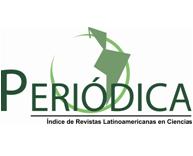MID-TERM EFFECT OF RENEWABLES SOURCES OF ENERGY IN THE SUSTAINABILITY OF ELECTRICITY GENERATION IN CHILE
Keywords:
electricity, solar energy, life cycle assessmentAbstract
The Atacama Desert in northern Chile features one of the highest solar radiation levels worldwide, and housing vast mining industries, which had activated the investment in solar photovoltaic (PV) power plants in order to assure their requirements. A massive introduction of solar PV plants in the Atacama region has the purpose to reach around 25% of the national generation capacity by 2050. In this context, this study presents the results of the solar energy effect in environmental, economic and social profile of electricity generation in Chile, considering a mid-term scenario, using a life-cycle approach, under drought conditions due to climate change. Results show that solar PV power electricity generation help to reduce global warming potential, marine ecotoxicity, and eutrophication potential, as well as import dependency, human toxicity, while levelized electricity cost and total capital cost present smoother variations.




















